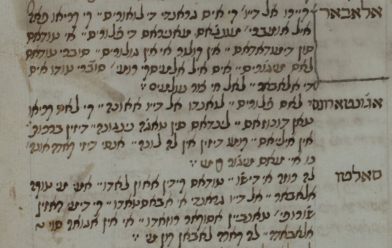Sida Musafija
65. El baile de los falsos (Sida Musafija)
This is a Judeo-Spanish contrafact of an extremely popular dance melody of the early twentieth century made famous in its French version as La Mattchiche, or Matchiche. Evidently, it was popular in Sarajevo where the linguist Julius Subak recorded it as early as 1908 (see Lieble 2009, no. 13; see also Cohen 2008, pp. 12-15). There is widespread confusion regarding the connection between this song and the Maxixe (or “Brazilian Tango”) that was imported from Rio de Janeiro to Paris in the 1870s. The Maxixe has roots in the Polka and Habanera and its dance patterns were apparently a mixture of the Two Step and Tango steps and patterns. However, La Mattchiche, or at least its refrain, originates in an 1895 zarzuela (lyrics by P. Cadenas; music by Pedro Badía) and is not strictly related to the Brazilian tango per se, except in its name. La Mattchiche usually appears in early sheet music editions as “Spanish march.” The zarzuela itself draws from a motif from the opera O Guarani (premiered in La Scala, 1870) by the great Brazilian composer Carlos Gómez. La Mattchiche was “composed” by Charles Borel-Clerc (1879-1959) to lyrics (by Léo Lelièvre and Paul Briollet) whose theme is the dance itself. Also circulating under the title La sorella, it was printed in sheet music as early as 1904 (a Saint Petersburg edition; the first American edition of 1905 has English lyrics by C.H. Taylor). However, it was the 1905 recording of La Mattchiche by one of the major figures of the French vaudeville at the time, Félix Mayol (1872-1941), that instantly catapulted this song into one of the greatest hits of the Belle Époque chanson (Mayol recorded it five times in different versions). During the first two decades of the 1900s this song was printed, performed, recorded, paraphrased and reworked countless times by many artists (including the young Maurice Chevalier) and in several languages. No wonder then that the Sephardic Jews of the Eastern Mediterranean, living under the aegis of French-inspired culture, reacted immediately to this hit and proceeded as people from other nations did: they wrote a cover version in their own language. Oral versions from Bulgaria and Bosnia were recorded. One widespread Judeo-Spanish version, entitled La judía y el español (from Turkey), even retains the original French refrain. However, Musafija’s version is probably the earliest of the Judeo-Spanish covers of La Mattchiche. The refrain (“Me sos dusmán, serás pismán,” translating as “You dishonor me, you will regret it”) includes two Turkish words that entered Ladino (düşman ‘enemy, antagonist’; pişman ‘regretful, repentant’) creating a phonetic imitation of the French refrain “Allons doucement, ne pressons pas l’mouvement.” This recording ends with an unrelated instrumental piece whose apparent function is just to complete the side of the record. It has a resemblance to the refrain of the Serbian folksong “Malo ja, malo ti, više ja, nego ti, pa ćemo se voleti, curo ja i ti”.
Amor a tí ti tengo,
tú no me queres.
Te quero y te mantengo
tú no me queres.
D’enfrente me pareces
una palomba.
Tú sos me compañera
hasta la tomba.
Me sos dusmán, serás pismán.
Abajando la escalera,
por darme buena sera,
me tomó por la mano,
me llev’al balo.
Al balo me decía
de mí no s’espartía.
Y yo l’arrespondía:
Todo falsía.
Me sos dusmán, serás pismán.
Salí yo a la plaza
por mercar el gastado.
M’encontró, m’enteregó
me demandó ‘l anillo.
Vamos presto a casa
m’esto quemando en braza.
Si la mama sabe esto
vos traba presto.
Me sos dusmán, serás pismán.
[….?] ria
me tienes gracia.
La hora de tu rabia
me sos desgracia.
T’envenga t’envengates
más enemiga.
Aséntate a mi lado
serás me amiga.







